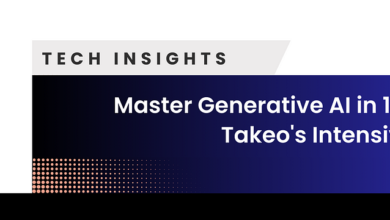Türkiye releases ethical guidelines for generative AI in academia

The Ministry of Higher Education recently announced groundbreaking guidelines for ensuring the ethical use of generative artificial intelligence (GAI) in scientific research and publication processes.
The project represents a significant milestone in the integration of advanced technologies into academia while upholding ethical standards and preserving scientific integrity.
The guidelines, titled “Ethics Guide of Generative Artificial Intelligence Use in the Scientific Research and Publication Process of Higher Education Institutions,” were developed in collaboration with experts from academia and industry under the supervision of the Council of Higher Education.
The guidelines were created to inform higher education institutions about understanding and evaluating the risks and opportunities in the rapidly developing field of GAI and to take precautions against the risks.
A press release by the Council of Higher Education Press and Public Relations Office stated: “Defining ethical values and establishing ethical rules based on these values in the integration of GAI into higher education processes is of great importance for maintaining scientific integrity and trust in science. During the preparation of the guide, the Council of Higher Education organized workshops to understand the opportunities and threats posed by GAI to higher education. Opinions were gathered from academics and the business world.”
The purpose and scope of the guidelines are to inform higher education institutions about the ethical considerations surrounding the use of GAI in scientific research and publications. They emphasize the importance of maintaining scientific integrity and trust in science while harnessing the potential of GAI.
The “Ethical Considerations” section examines the values guiding the use of GAI, including clarity, honesty, caution, fairness, respect, privacy and responsibility. It emphasizes the necessity for researchers to exercise care and responsibility in utilizing GAI tools.
Risks and ethical issues are also addressed regarding potential concerns linked to GAI use, such as bias, breaches of data privacy and exacerbating discrimination. They underscore the importance of addressing these risks to maintain ethical standards.
Practical recommendations are provided for the ethical use of GAI systems, including a thorough understanding of system functionalities, accountability for ethical violations and adherence to data privacy regulations.
The application and compliance guidelines apply to all higher education institutions engaged in scientific research and publication activities. They are designed to be dynamic documents that can be updated to reflect evolving technological and ethical landscapes.
These guidelines apply to all higher education institutions engaged in scientific research and publication activities. They are designed to guide researchers, academics and institutions using GAI tools and technologies.
The guidelines offer a comprehensive framework for researchers and institutions to navigate the ethical complexities of using GAI. They outline key ethical values like transparency, integrity, diligence, and respect and provide practical recommendations for ensuring responsible AI use.
As mentioned, the main purpose of these guidelines is to promote ethical standards in academic research and publication processes amid the rapid advancement of AI technologies. By providing clear ethical standards and recommendations, they aim to foster a culture of ethical awareness and responsibility within the academic community.



